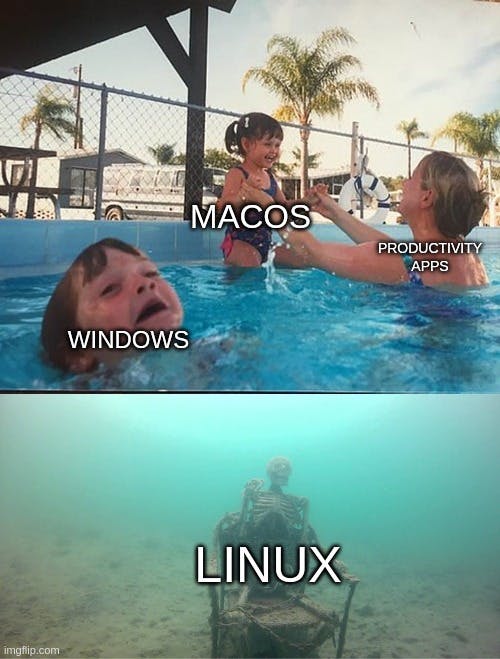Table of contents
There are millions of "Productivity" apps right now, and using them feels more of a chore than an extension to your day-to-day workflow.
I tried many productivity apps this year. However, none of them felt that they were an extension of my workflow instead I felt it was more of a chore filling up everything. I am a daily Linux driver and the desktop app these apps provide for Linux is slow and unusable (and for some applications, the desktop app for Linux doesn't even exist!).

These productivity apps rarely allow more than 2 types of data (calendar & to-do list), I can't seamlessly add data and the UI/UX is not that good.
The solution
After spending a lot of time researching new productivity apps, I was still unable to find a good one that is good enough for me to use every day. I would spend somewhere between 10-45 minutes writing down all the tasks and then following the schedule would be hard (as again Linux support sucks and I would never get a notification 5-15 minutes before). The answer is obvious now, I am creating an entirely open source app named Twidge (GitHub),
Core concepts
- Spaces: Spaces help you divide tasks based on the context (say work, personal, research, etc)
- Notes: Places where you write in blocks of text so that you can look at them later on (think of this as the to-do list on your refrigerator).
- Embeds: Link embeds so that you can save resources you found now to look at them later on.
- Tasks: ToDo list which notifies you before 5-15 minutes.
So what's different?
- Cross platform.
- Infinite scroll-view: Bye-bye boring tables, become creative on how you plan your day, with a figma-like infinite scroll view!
- Built using Rust & Tauri to reduce the amount of ram usage by a lot.
- Open-Source and requires no internet connection.
- Ctrl/Cmd menu (just like Albert or MacOS spotlight) so that you can create new tasks/embeds/spaces/notes without opening the app.